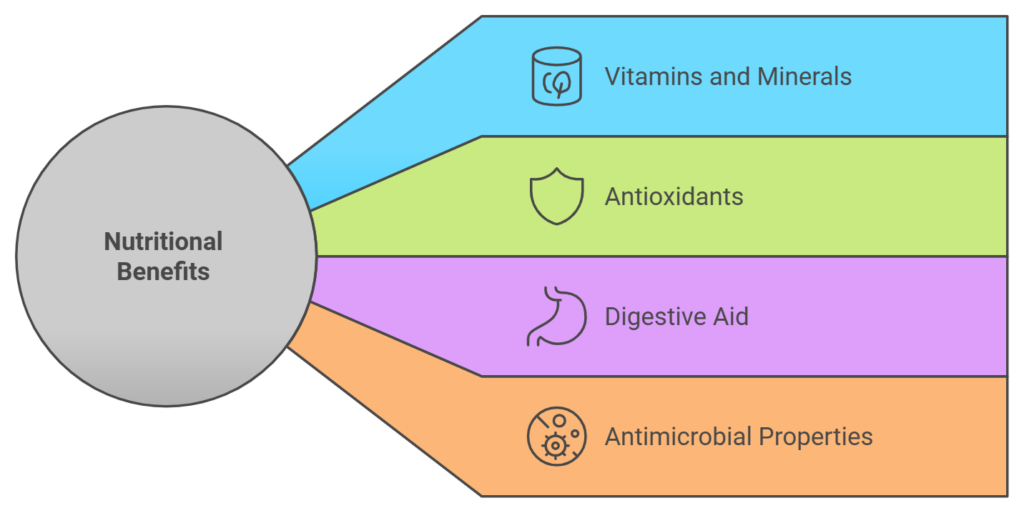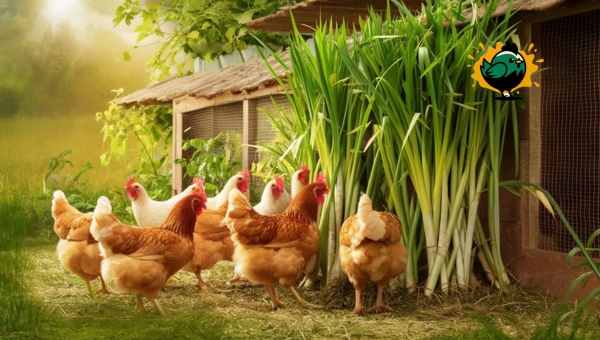Is Lemongrass Safe for Chickens? Discover the Truth

When it comes to enhancing your chicken’s diet, you might have considered lemongrass. This fragrant herb, celebrated for its delightful citrus aroma, is more than a kitchen staple—it could be a game-changer for your backyard coop. But is lemongrass safe for chickens? Before you mix it into their feed, it’s essential to weigh the potential benefits against the risks.
This guide will unravel the truth about lemongrass and its impact on your feathered friends, providing you with the insights needed to make informed choices. With thoughtful consideration and a touch of curiosity, you’ll learn how to safely incorporate this remarkable herb into their diet.
Understanding Lemongrass
Lemongrass is a fragrant herb known for its citrusy aroma and is widely used in cooking and herbal medicine. It belongs to the Cymbopogon genus and is native to tropical regions. This plant is characterized by its long, slender leaves and bulbous base, which are often used to add flavor to dishes.
Besides its culinary uses, lemongrass has gained attention for its potential health benefits. It contains compounds such as citral and limonene, which are believed to have antimicrobial and anti-inflammatory properties.
The herb is often used in teas and as an essential oil. With its refreshing scent, lemongrass is also a popular choice in aromatherapy. Its versatility makes it a valuable addition to various applications.
Nutritional Benefits of Lemongrass for Chickens
Lemongrass is not just a flavorful herb; it offers several nutritional benefits for chickens.

Here are some key points:
- Vitamins and Minerals: Lemongrass is rich in essential nutrients like vitamin C and vitamin A, which support the immune system and promote overall health in chickens.
- Antioxidants: The herb contains antioxidants that help combat oxidative stress, potentially leading to healthier and more resilient chickens.
- Digestive Aid: Lemongrass can aid in digestion, ensuring chickens absorb nutrients more effectively from their feed.
- Antimicrobial Properties: Its natural antimicrobial properties can help reduce harmful bacteria in chickens, contributing to a healthier flock.
Incorporating lemongrass into a chicken’s diet can thus be a beneficial and natural way to enhance their well-being.
Also Read: Dominique Chicken | The Heritage Breed You Need to Know
Potential Risks of Lemongrass to Chickens
When considering adding lemongrass to a chicken’s diet, it’s crucial to be aware of possible risks. While lemongrass offers nutritional benefits, some chickens might experience adverse effects. Let’s take a closer look at two primary concerns—possible allergic reactions and digestive issues that could arise from its consumption.

Allergic Reactions
Chickens, much like other animals, can sometimes have allergies. It’s important to monitor your flock when introducing lemongrass, as they might show signs of an allergic reaction.
Symptoms can include:
- Swelling or redness around the eyes or beak.
- Increased scratching or irritation.
- Respiratory difficulties.
If any of these symptoms occur, it might be best to remove lemongrass from their diet.
Digestive Issues
Introducing new foods can sometimes lead to digestive problems in chickens. When offering lemongrass, consider the following potential issues:
- Upset Stomach: Overconsumption may lead to stomach discomfort.
- Diarrhea: A sudden change in diet can cause loose stools.
- Reduced Appetite: Some chickens may eat less if they find lemongrass unappealing.
Monitoring their reaction and adjusting the quantity given can help manage these risks effectively.
How to Introduce Lemongrass to Chickens?
Introducing lemongrass to your chickens can be a beneficial addition to their diet. However, it’s important to be mindful of how it’s introduced, considering the form and quantity.

Chickens may react differently to fresh and dried lemongrass, and knowing the right amount to offer is vital for their health. Before you start, let’s delve into the differences and guidelines for feeding lemongrass to your flock.
Fresh vs. Dried Lemongrass
When it comes to fresh and dried lemongrass, each has its own set of advantages and challenges:
- Fresh Lemongrass:
- Benefits: Rich in natural oils and nutrients.
- Challenges: Can spoil quickly if not consumed.
- Dried Lemongrass:
- Benefits: Longer shelf life and easier to store.
- Challenges: May lose some nutrient content during drying.
Safe Quantities
To ensure lemongrass is safely consumed by chickens, consider these guidelines:
- Start Small: Introduce a small amount and observe their reaction.
- Gradual Increase: Slowly increase the quantity if no adverse reactions occur.
- Monitor Health: Watch for any changes in behavior or health.
By carefully managing these aspects, lemongrass can be a safe and nutritious addition to your chickens’ diet.
Also Read: Best Food for Egg Production [Boost Your Flock’s Health]
Expert Opinions on Lemongrass for Chickens
When considering adding lemongrass to your chickens’ diet, it’s helpful to turn to the insights of poultry experts. They provide valuable guidance on the potential benefits and concerns associated with this aromatic plant.
Insights from Experts
- Nutritional Benefits: Experts often highlight the vitamins and minerals in lemongrass, which can support chicken health.
- Moderation is Key: Many suggest that while lemongrass can be beneficial, it should be offered in moderation to avoid any adverse effects.
- Observing Reactions: Poultry experts recommend observing chickens for any unusual reactions when introducing lemongrass to their diet.
- Variety in Diet: It’s emphasized that lemongrass should be part of a balanced diet, rather than the sole component, to ensure overall nutritional needs are met.
By following expert advice, chicken owners can make informed decisions about incorporating lemongrass safely and effectively.
Conclusion
Lemongrass can be a beneficial addition to a chicken’s diet when used appropriately. It offers nutritional benefits like vitamins and minerals that support overall health. However, it’s crucial to be cautious of potential allergic reactions and digestive issues.
Introducing lemongrass gradually and in safe quantities helps ensure your chickens can enjoy its benefits without adverse effects. Consulting poultry experts can provide further insights into its safe use. Understanding both the positives and potential risks will help in making informed decisions for your flock’s well-being.
If you’re interested in more insights on chicken care, explore our site for more informative articles.
